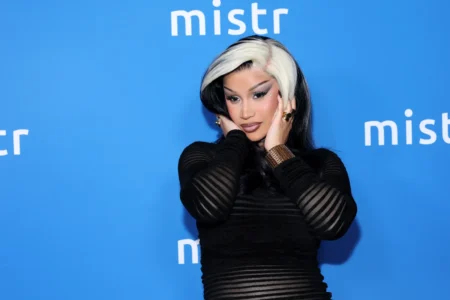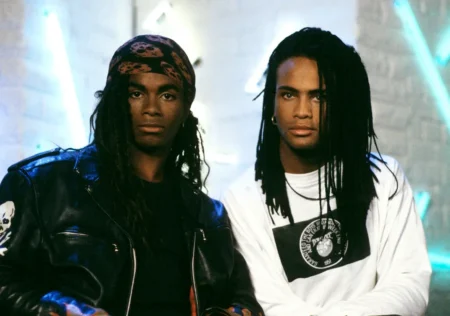Quex Calls Out UPRS Over ‘Unfair’ Shs40k Royalty Payment: A Music Industry Crisis in Uganda?
Ugandan recording artist Quex, known for his popular hit “Kachumbali,” has publicly expressed his frustration with the Uganda Performing Rights Society (UPRS) over what he considers an unfair royalty payment of just Shs40,000. The singer, who has enjoyed significant radio and TV play for his music, voiced his concerns about the apparent disparity between his royalties and those of other artists, calling for intervention from the Uganda Communications Commission (UCC) to address what he views as exploitation of local musicians.
Quex’s Royalty Struggles: Music Everywhere, But the Payments Don’t Add Up
In a candid interview, Quex detailed his visit to the UPRS offices, where he inquired about his royalty payments and was shocked to discover that his total payment for the year amounted to only Shs40,000. Given the immense popularity of his music, which has been played extensively across Uganda, the artist found this figure to be an insult to his hard work and dedication.
“I dropped one of the hottest songs in Uganda, but when I went to UPRS, I was offered only Shs40k. My song was played everywhere, and it felt incredibly unfair,” Quex explained. “I looked at the list and saw that some artists were receiving millions for their royalties, but my payment didn’t make sense at all.”
Quex’s story sheds light on a troubling issue that many local artists face when it comes to royalty distribution in Uganda. Despite the widespread success of their songs, artists often find themselves at the mercy of organizations like UPRS, whose payment practices remain opaque and questionable to many.
The Disparity in Uganda’s Royalty System: Is There a Hidden Agenda?
The revelation of Quex’s Shs40,000 royalty payment raises significant questions about the royalty distribution system in Uganda. Artists like Quex, whose songs dominate local airwaves, are often left wondering how the system determines the amount they are paid. With some artists receiving millions while others, like Quex, get a fraction of that, many are now questioning the transparency and fairness of UPRS’s practices.
In his interview, Quex highlighted the lack of clarity regarding how royalties are calculated and distributed, calling for more oversight from regulatory bodies like the UCC. “I just want UCC to step in and help artists who are being exploited. This isn’t right, and something needs to be done,” he said.
The musician’s outcry is not just a personal grievance but also a reflection of the broader struggles facing many Ugandan musicians. With royalties representing a significant source of income for artists, the low payments they receive are often a major financial setback, making it difficult for them to sustain their careers.
Record Labels: A Blessing or a Curse for Ugandan Artists?
In addition to discussing his frustrations with UPRS, Quex also shared his thoughts on the role of music record labels in Uganda’s growing music industry. While he acknowledges the positive impact that record labels have had in promoting new talent and shaping the industry, he raised concerns about the exploitative contracts that often trap young, up-and-coming artists.
“Music record labels have had a huge impact on the industry. Swangz Avenue, for example, has done something commendable by helping to launch the careers of new artists,” Quex said. “But the problem lies in the bad contracts they make artists sign. These contracts can be restrictive and unfair, often leaving artists in a bad situation.”
Quex’s criticisms are shared by many artists in Uganda, who feel that the contracts they sign with record labels don’t give them fair compensation for their work. Record labels play a key role in promoting artists, but without proper legal protections in place, many musicians find themselves locked into unfavorable deals that limit their earning potential.
The Need for Change: UPRS, Record Labels, and the Fight for Fairness in Uganda’s Music Industry
Quex’s frustration with UPRS and his views on record labels are part of a larger conversation about the state of Uganda’s music industry. As the industry continues to grow and gain international recognition, there is an increasing need for fairness, transparency, and support for the artists who drive its success.
The issue of royalty payments is one that needs urgent attention. Artists should be fairly compensated for their hard work, and organizations like UPRS should be held accountable for how they distribute royalties. The lack of clarity and fairness in royalty payments is something that not only affects established artists like Quex but also puts the future of Uganda’s music industry in jeopardy.
Quex’s call for intervention from UCC is a plea for fairness that many in Uganda’s music community echo. With more visibility and support from the authorities, artists can hope for a system that values their contributions and ensures they receive the compensation they deserve.
Conclusion: What Needs to Change for Uganda’s Musicians?
The struggles Quex faces with his royalty payments are not unique, and they highlight the ongoing challenges in Uganda’s music industry. Whether it’s the question of royalty fairness or the issue of exploitative record label contracts, the current state of affairs calls for systemic changes that prioritize the well-being of artists.
Quex’s public outcry is a step toward sparking these much-needed changes. By shining a spotlight on the inequality in Uganda’s music industry, he hopes to inspire others to speak out and demand better treatment for artists.
As Uganda’s music scene continues to thrive, the question remains: How will the authorities and the music industry address the concerns raised by artists like Quex? Until changes are made, many Ugandan musicians will continue to struggle with unfair payments and exploitative contracts, undermining the potential of an industry that is full of talent and promise.














